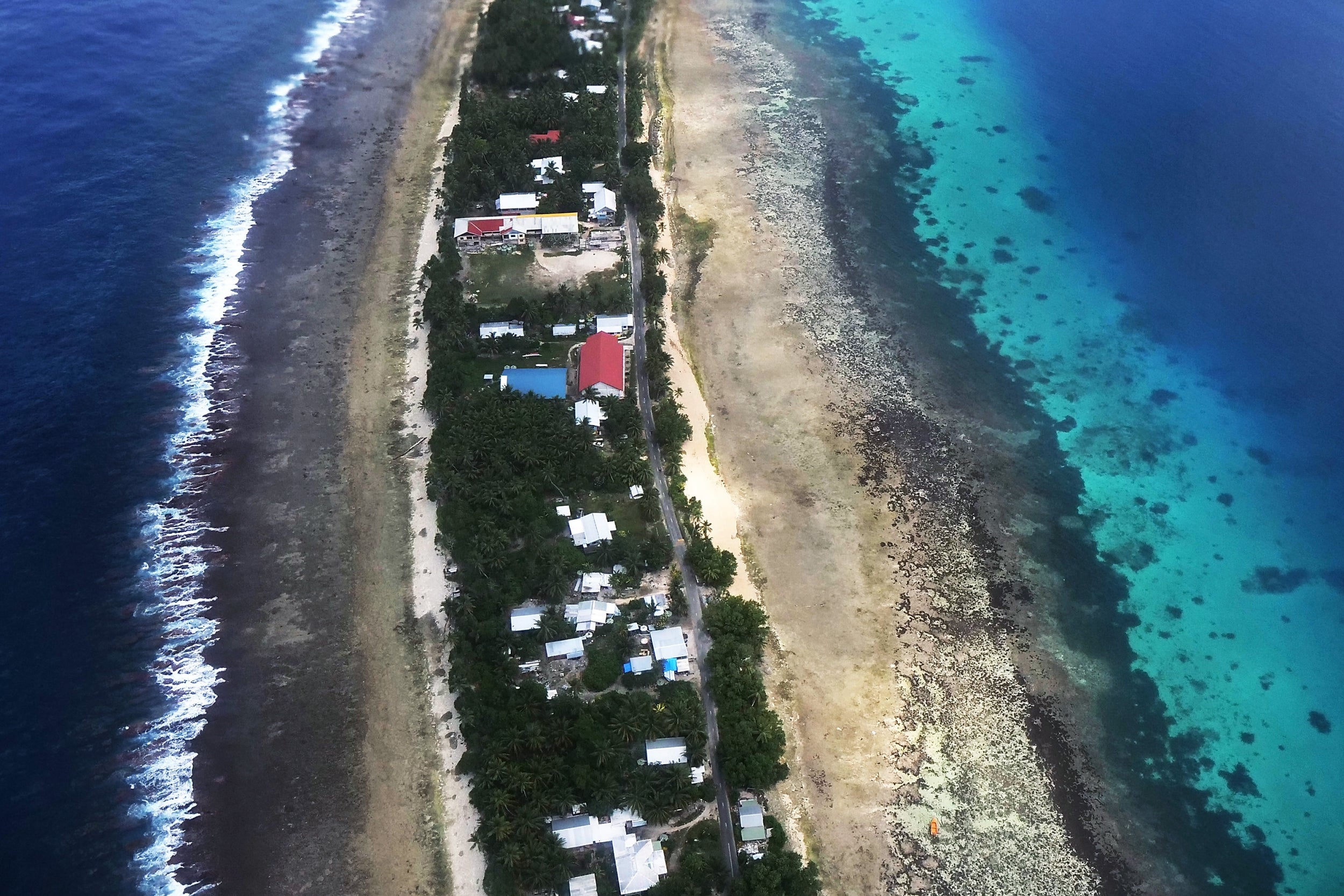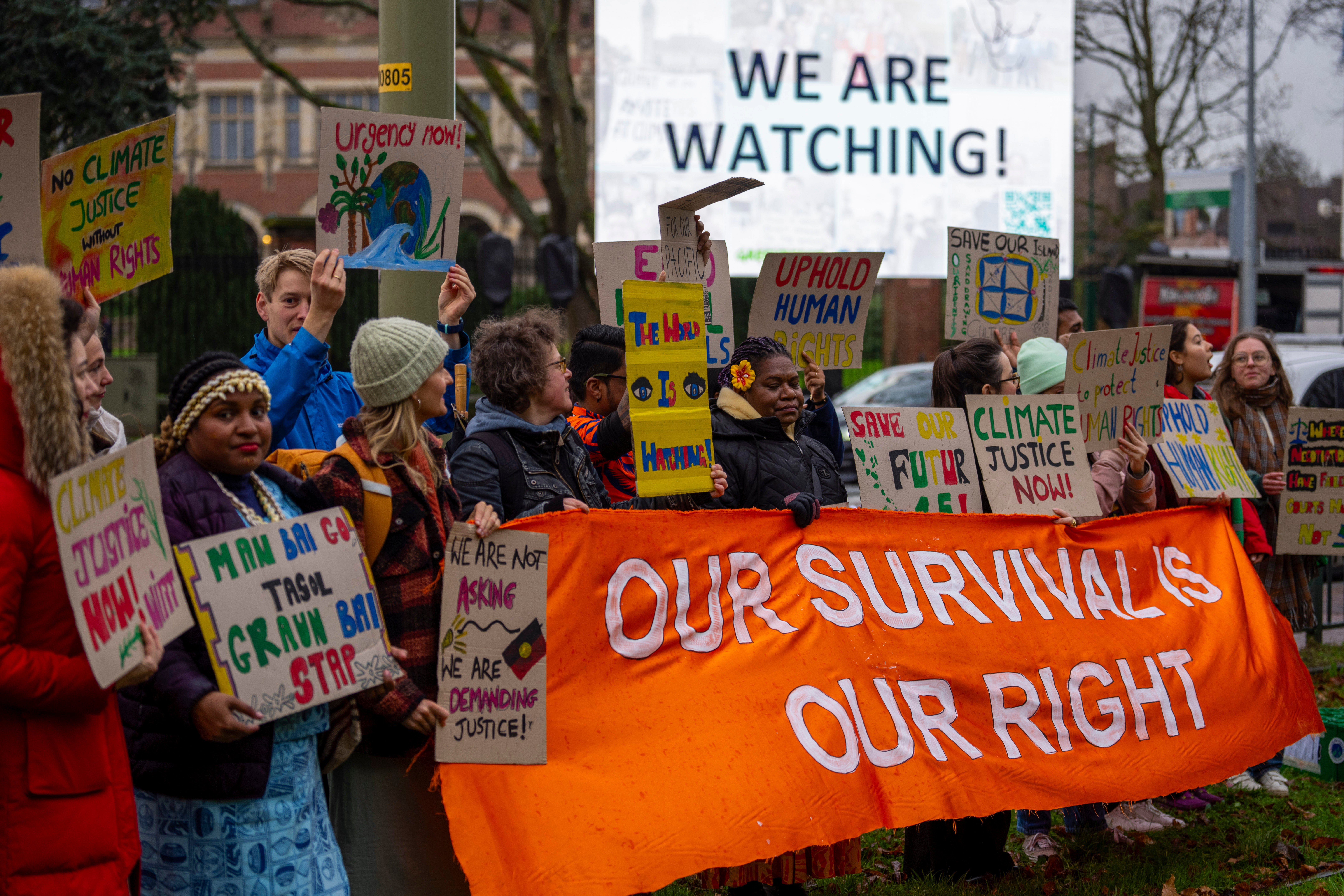Healthy environment ruled a human right by world’s top court
July 23, 2025
The world’s top court has said a healthy environment is a human right, and governments could be violating international law if they fail to act on climate change in a landmark ruling for international law and environmental justice.
The opinion by the International Court of Justice was welcomed by campaigners as a “turning point” and a “seismic win” that sets a precedent for thousands of legal cases against governments and fossil fuel companies.
As judge Yuji Iwasawa delivered his opening remarks in The Hague on Wednesday, he warned of “the urgent and existential threat posed by climate change” and said that greenhouse gas emissions are “unequivocally caused by human activities which are not territorially limited.”
“Climate change treaties establish stringent obligations on states,” he said, adding that failing to comply with them was a breach of international law.
“States must cooperate to achieve concrete emission reduction targets,” Iwasawa said, as he read out the court’s advisory opinion.
He said that national climate plans must be of the highest ambition and collectively maintain standards to meet the aims of the 2015 Paris Agreement that include attempting to keep global warming below 1.5 degrees Celsius (2.7 Fahrenheit).
Under international law, he said: “The human right to a clean, healthy and sustainable environment is essential for the enjoyment of other human rights.”
“Failure of a state to take appropriate action to protect the climate system … may constitute an internationally wrongful act,” he said.
Crowds had gathered outside the Peace Palace ahead of the ruling, chanting, “What do we want? Climate justice! When do we want it? Now!”
The ruling follows a legal campaign led by Vanuatu, which drew submissions from over 100 countries and organisations – making it the biggest case in the court’s history.

The case asks judges to clarify countries’ legal obligations to prevent climate crisis-related harm, and the consequences they could face for failing to act.
While the court’s opinion is not legally binding, it is expected to influence future litigation and negotiations around the world, especially as countries prepare new national climate plans ahead of the COP30 summit in Brazil.
The 500-page opinion is being hailed as a turning point in the fight against climate inaction.
“Today, the tables have turned. The world’s highest court provided us with a powerful new tool to protect people from the devastating impacts of the climate crisis — and to deliver justice for the harm their emissions have already caused,” former UN human rights chief Mary Robinson said in a statement.
“This is a seismic win for climate justice,” said Christian Aid’s global advocacy lead Mariana Paoli. “The ICJ has made it crystal clear: big polluters can’t dodge responsibility any longer.”
Bill Hare, chief executive of Climate Analytics, said the court had reinforced the legal weight behind existing agreements. “States have a responsibility to regulate private activity within their jurisdictions and they have a responsibility to all other states for the consequences of actions taken,” he said.
“This together means that countries have an obligation to limit, reduce and ultimately eliminate fossil fuel production.”
From Vanuatu, which spearheaded the case, ActionAid’s country manager Flora Vano said: “This ruling is a powerful tool we can use to demand that those most responsible for this climate crisis be held accountable.”
A panel of 15 judges was tasked with answering two questions: What are countries obliged to do under international law to protect the climate and environment from human-caused greenhouse gas emissions? Second, what are the legal consequences for governments when their acts, or lack of action, have significantly harmed the climate and environment?
Small island developing states (SIDS), who launched the push for the ICJ opinion, argue that existing frameworks such as the Paris Agreement do not go far enough in defining responsibility. They have asked the court to draw from human rights law, the UN Convention on the Law of the Sea, and the wider body of international law to set a clear legal standard.
“For the world’s most vulnerable, the upcoming advisory opinion… is a milestone after decades of our calls for international accountability,” the Alliance of Small Island States (AOSIS) said in a statement ahead of the ruling. “This advisory opinion brings to bear the responsibility of countries to urgently accelerate climate action and safeguard vulnerable nations whose fundamental rights are debilitated by a crisis we did not cause.”
During the hearings, held in December last year, the court heard testimonies from almost 100 countries and 12 international organisations. Countries like Tuvalu and Zambia used their time before the court to detail the existential threats posed by sea-level rise and climate-linked drought.
“Tuvalu will not go quietly into the rising sea,” its delegation said.
In the decade up to 2023, sea levels rose by a global average of around 4.3 centimetres (1.7 inches), with parts of the Pacific rising higher still. The world has also warmed 1.3 degrees Celsius (2.3 Fahrenheit) since preindustrial times because of the burning of fossil fuels.
While countries like the UK and Germany argued that the Paris Agreement already provides sufficient legal direction, others – including France, Spain and many Global South nations – urged the court to go further.
The United States and Russia, both of whom are major petroleum-producing states, are staunchly opposed to the court mandating emissions reductions.
Spain cited the European Court of Human Rights’ recent ruling recognising that governments have human rights obligations in the face of the climate crisis, while France said the ICJ opinion could help clarify international law in the fight against climate impacts.

In its submission, Palau, the chair of AOSIS, presented evidence of “worrying warming” in its waters and warned that high-end sea-level rise scenarios could leave large parts of the country underwater by 2100.
The opinion, AOSIS said, “can make clear that countries’ duties to live up to their commitments are irrefutable”.
AOSIS called the moment “an opportunity to restore trust and correct a grave injustice,” urging countries to match the courage shown by climate-vulnerable nations with political will.
The ruling comes just a day after UN Secretary-General António Guterres declared that “the fossil fuel age is flailing and failing” and called for “deep, rapid, and sustained” emissions cuts.
“The clean energy future is no longer a promise. It’s a fact,” Guterres said. “Countries that cling to fossil fuels are not protecting their economies, they are sabotaging them.”
The ICJ’s ruling will be advisory but carries symbolic and legal weight. Supporters of the case say the ruling could strengthen future climate lawsuits by grounding them more firmly in international law, and by making it harder for states to ignore climate harm that crosses borders.
Oxfam’s Chiara Liguori said the opinion “injects strong new impetus into negotiations at the COP30 Summit in Brazil this November” and urged wealthy nations like the UK to accept their legal obligations. “This is not a wish list – it is international law,” she said.
With nearly 3,000 climate-related lawsuits filed globally across 60 countries, the ICJ’s interpretation could shape how courts everywhere respond to future claims.
Lorenzo Cotula, principal researcher at IIED, said the court had delivered long-overdue legal clarity. “The weight of evidence showing governments are legally obliged to fight climate change is now as overwhelming as the science showing how our planet is changing,” he said.
But Cotula also warned that international treaties protecting fossil fuel investments may obstruct progress. “The system governing investor–state relations should be reformed as part of the response to climate change,” he said. “The ICJ’s advisory opinion provides a basis for that reform.”
Search
RECENT PRESS RELEASES
Related Post


